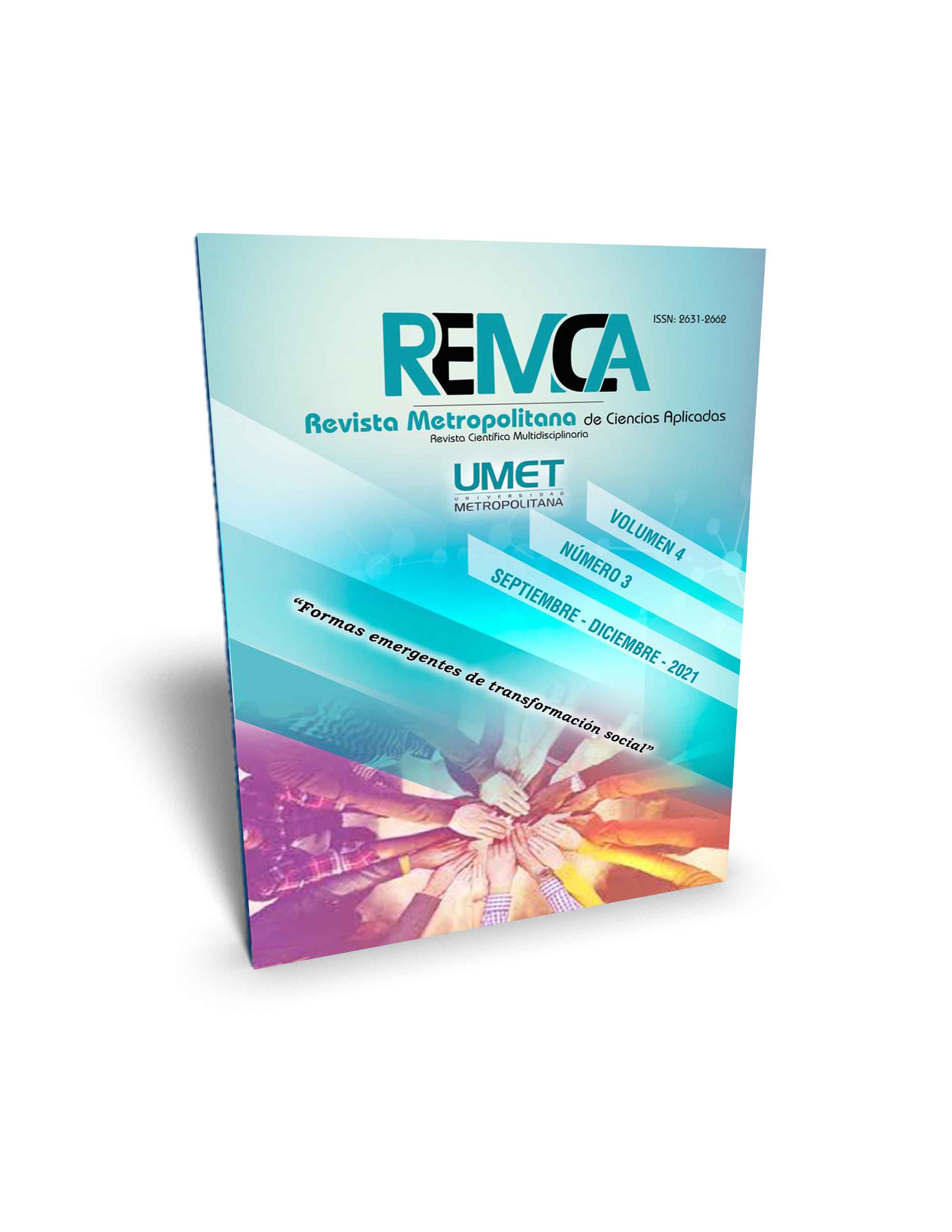Proposals for improvements in environmental management for the competitiveness of the Mipymes inthe province of El Oro, Ecuador
DOI:
https://doi.org/10.62452/821r6259Keywords:
Environmental management, mipymes, competitiveness, companiesAbstract
Environmental management in companies constitutes a tool of great importance for the protection and conservation of the environment and generates great benefits for companies that apply it. The objective of this work is to propose a series of improvements to the environmental management of companies, in order to increase their competitiveness. The approach used in the research is quantitative, using the deductive method for this. The type of research is descriptive with the application of a field design. For its development, it was based on the surveys carried out to 172 mipymes in the El Oro province. The results show that of the dimensions studied to find out the internal business competitiveness of the miymes in Orense, the environmental management dimension was the one that obtained the lowest average of all. The following actions to improve environmental management are proposed:inclusion of the environmental variable in company planning; training of human resources in environmental issues; management of environmental regulations; economic resources for environmental improvements; use of eco-efficient and clean technologies; continuous application of environmental practices; monitoring, follow-up and control of environmental aspects and application of measures to mitigate and control environmental problems.
Downloads
References
Acuña, N., Figueroa, L., & Wilches, M. J. (2017). Influencia de los sistemas de gestión ambiental ISO 14001 en las organizaciones: caso estudio empresas manufactureras de Barranquilla. Ingeniare. Revista chilena de ingeniería, 25(1), 143-153.
Avendaño Castro, W. R., Rueda Vera, G., & Paz Montes, L. S. (2016). La gestión ambiental en las pymes del sector arcilla en Cúcuta y su área metropolitana. Revista Finanz. Polit. Econ., 8(1), 123-155.
Buchelli Figueroa, J. R. (2019). Propuesta de aplicación de responsabilidad social para pymes en el Ecuador. (Trabajo de titulación). Pontificia Universidad Católica del Ecuador.
Cárdenas-García, M., Velasco-Burgos, B.M., & Cañizares-Arévalo, M. (2018). Coopetencia, Modelo de Gestión Empresarial para Mipymes de Ocaña. Revista Respuestas, 23 (S1), 59-65.
Denegri de Dios, F. M., & Peña Salmón, C. A. (2011). Identificación de perfiles ambientales en la pyme a través de la auditoría ambiental. Revista Contaduría y Administración, (235), 195-215.
Ecuador. Instituto Nacional de Estadísticas y Censos. Ecuador. (2015). Directorio de empresas. INEC. http://www.ecuadorencifras.gob.ec/directoriodeempresas/
González Ordóñez, A. I. (2019). Gestión ambiental y competitividad de las pymes del sector comercio en el cantón Machala, Provincia El Oro, Ecuador. Revista Espacios, 40(27).
González Ordóñez, A. I. (2017). La gestión ambiental en la competitividad de las pymes. Revista Científica Agroecosistemas, 5(1), 60-70.
González Ordóñez, A. I., Alaña Castillo, T. P., & Gonzaga, S. J. (2017). La gestión ambiental en la competitividad de las Pymes del Ecuador. Revista INNOVA Research Journal, 2 (8), 236-248.
González Ordóñez, A. I., Capa Benítez, L. B., Luciani Toro, L. R., & Zambrano Morales, A. A. (2019). La gestión ambiental en la competitividad de las mipymes de la Provincia El Oro, Ecuador. Revista Espacios, 40(4).
González Ordóñez, A.I. (2020). La formación ambiental del talento humano y la competitividad en las Mipymes de los sectores agropecuario, servicios y comercio, provincia El Oro, Ecuador. Revista Científica Agroecosistemas, 8(1), 15-22.
Mejía Posada, L., & Campos Ospina, I. C. (2013). Los organismos de cooperación nacional e internacional y el fomento a la gestión ambiental como factor de competitividad de la Mipymes urbana y rural en Colombia. (Trabajo de grado). Universidad de Manizales.
Saavedra García, M. L. (2012). Una propuesta para la determinación de la competitividad en la pyme latinoamericana. Revista Pensamiento y gestión, (33), 93-124.
Saavedra García, M. L., & Milla Toro, S. O. (2012). La competitividad en el nivel micro de la mipyme en el estado de Querétaro. (Ponencia). XVII Congreso Internacional de Contaduría, Administración e Informática. Ciudad de México D.F.
Downloads
Published
Issue
Section
License
Copyright (c) 2021 Andreína Inés González Ordóñez (Autor/a)

This work is licensed under a Creative Commons Attribution-NonCommercial-ShareAlike 4.0 International License.
Authors who publish in Revista Metropolitana de Ciencias Aplicadas (REMCA), agree to the following terms:
1. Copyright
Authors retain unrestricted copyright to their work. Authors grant the journal the right of first publication. To this end, they assign the journal non-exclusive exploitation rights (reproduction, distribution, public communication, and transformation). Authors may enter into additional agreements for the non-exclusive distribution of the version of the work published in the journal, provided that acknowledgment of its initial publication in this journal is given.
© The authors.
2. License
The articles are published in the journal under the Creative Commons Attribution-NonCommercial-ShareAlike 4.0 International License (CC BY-NC-SA 4.0). The terms can be found at: https://creativecommons.org/licenses/by-nc-sa/4.0/deed.en
This license allows:
- Sharing: Copying and redistributing the material in any medium or format.
- Adapting: Remixing, transforming, and building upon the material.
Under the following terms:
- Attribution: You must give appropriate credit, provide a link to the license, and indicate if any changes were made. You may do this in any reasonable manner, but not in any way that suggests the licensor endorses or sponsors your use.
- NonCommercial: You may not use the material for commercial purposes.
- ShareAlike: If you remix, transform, or build upon the material, you must distribute your creation under the same license as the original work.
There are no additional restrictions. You may not apply legal terms or technological measures that legally restrict others from doing anything the license permits.




